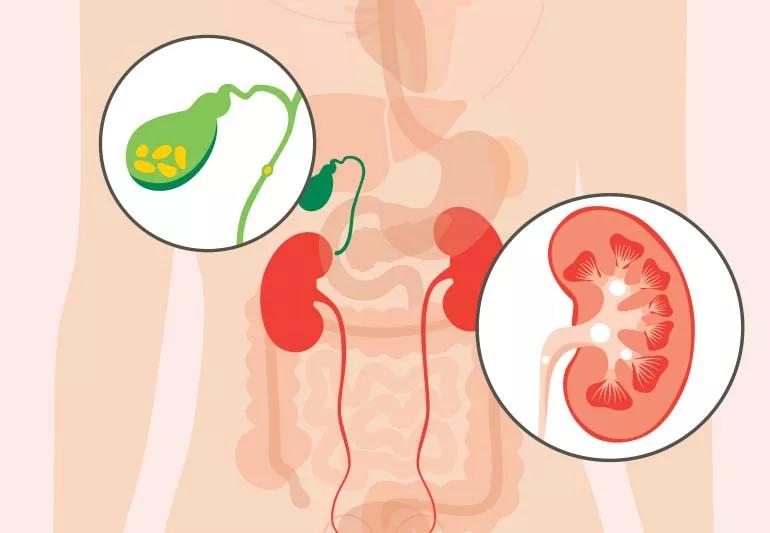Comprehending the Trick Differences Between Kidney Stones and Urinary System System Infections: A Comprehensive Summary for People
Comprehending the differences between kidney stones and urinary tract infections (UTIs) is essential for patients that may be experiencing comparable signs yet face vastly different wellness difficulties. As we discover these important aspects, it becomes clear that acknowledging the unique features of each condition can greatly affect patient end results.
Summary of Kidney Stones
The development of kidney stones, a commonly devastating and unpleasant problem, highlights the important value of keeping kidney health. The main kinds of kidney stones consist of calcium oxalate, calcium phosphate, uric acid, struvite, and cystine stones, each with distinctive causes and threat variables.
Several factors contribute to the development of kidney stones. Furthermore, metabolic conditions and certain medical conditions might predispose individuals to stone development.
Signs and symptoms of kidney stones can consist of extreme flank hematuria, queasiness, and pain, which commonly trigger urgent clinical examination. Treatment choices vary, ranging from increased liquid intake and dietary modifications to medical treatments such as lithotripsy or surgical removal, relying on the dimension and area of the stones. Understanding these facets is necessary for efficient prevention and management.
Review of Urinary System Tract Infections
Urinary system infections (UTIs) represent a common yet considerable wellness concern, impacting millions of individuals yearly. These infections take place when bacteria go into the urinary system, which consists of the kidneys, ureters, bladder, and urethra.
The risk aspects for developing a UTI include sex-related activity, specific kinds of birth control, urinary system retention, and a background of previous infections. Individuals with weakened pre-existing problems or immune systems, such as diabetes, may likewise be at higher risk. UTIs can be categorized right into 2 major types: straightforward and complex. Straightforward UTIs are generally limited to the bladder and are extra common in healthy individuals, while challenging UTIs might entail the kidneys and occur in those with underlying health and wellness concerns.
Prompt diagnosis and treatment are necessary to stop issues, such as recurring infections or kidney damages (Kidney Stones vs UTI). Normally, UTIs are treated with anti-biotics, and safety nets can be used for those with regular incidents
Common Signs Comparison
Symptoms of urinary system infections and kidney stones can frequently overlap, resulting in confusion in medical diagnosis. Both problems can provide with pain in the lower abdomen or back, yet the nature and place of the pain frequently differ. In urinary system infections (UTIs), individuals usually experience a burning sensation throughout peeing, constant advises to urinate, and over cast or strong-smelling pee. On the other hand, kidney stones tend to create serious, sharp pain that emits from the back to the reduced abdominal area and groin, usually referred to as colicky pain.
Additionally, UTIs might be accompanied by high temperature and chills, specifically in much more extreme cases, while kidney stones can lead to nausea or vomiting and throwing up as a result of intense discomfort. Both problems can result in blood in the pee (hematuria), however the visibility of blood is much more generally connected with kidney stones. While Read Full Report discomfort during urination is a trademark of UTIs, kidney stones usually offer with more sharp pain episodes, which may come and go. Recognizing these sign differences can assist clients in identifying their problem, although medical examination remains necessary for exact diagnosis and treatment.
Medical Diagnosis Approaches
Just how can healthcare experts properly set apart between kidney stones and urinary system tract infections? The analysis procedure starts with a thorough case history and an in-depth testimonial of the person's signs and symptoms. Medical professionals usually execute a physical assessment, which might disclose inflammation in the abdomen or flank region, guiding the analysis pathway.
Laboratory tests play an important role in identifying in between these 2 conditions. Kidney Stones vs UTI. A urinalysis can identify the presence of blood, crystals, or microorganisms, which are a measure of either condition. In situations of urinary system infections, blog here the urinalysis might show a significant existence of white blood cells and nitrites, while kidney stones might provide with particular crystals
Imaging studies, such as stomach ultrasound or computed tomography (CT) scans, are important for visualizing kidney stones. These imaging methods enable doctor to evaluate stone dimension, location, and possible obstructions in the urinary system tract. On the other hand, urinary system tract infections normally do not require imaging unless complications are believed.
Together, these analysis techniques encourage healthcare specialists to precisely diagnose and separate in between kidney stones and urinary system tract infections, making certain that clients obtain ideal treatment and management.
Therapy Options and Avoidance
While both kidney stones and urinary system infections (UTIs) require punctual treatment, their administration approaches differ substantially.
The view it now therapy for kidney stones typically entails pain management, hydration, and sometimes, medical procedures such as extracorporeal shock wave lithotripsy (ESWL) or ureteroscopy to break or eliminate down stones. Clients are regularly advised to boost liquid intake to facilitate stone passage and minimize reappearance. Nutritional modifications might also be essential, depending upon the stone kind.
On the other hand, UTIs are mostly treated with antibiotics to eliminate the bacterial infection. The certain antibiotic recommended relies on the bacteria identified and regional resistance patterns. Extra procedures, such as increased fluid intake and urinary analgesics, may assist alleviate signs.
Prevention strategies vary too; for kidney stones, keeping ample hydration and sticking to dietary limitations can be effective. For UTIs, preventive techniques include proper health techniques, urinating after intercourse, and possibly prophylactic anti-biotics for recurrent infections. Recognizing these therapy and prevention techniques is important for reliable administration and to reduce the risk of complications connected with both problems.
Final Thought

Understanding the distinctions in between kidney stones and urinary system tract infections (UTIs) is crucial for individuals that might be experiencing similar symptoms yet deal with significantly various health and wellness difficulties. The primary types of kidney stones include calcium oxalate, calcium phosphate, uric acid, struvite, and cystine stones, each with distinctive causes and risk elements.

Comments on “Kidney Stones vs UTI: Expert Insights on Symptoms, Diagnosis, and Administration”